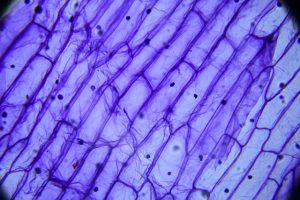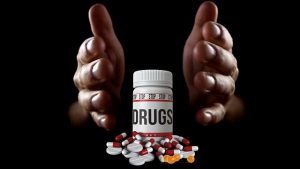Comprehensive Dual Diagnosis Treatment Strategies in New Jersey’s Rehabilitation Centers
New Jersey's dual diagnosis treatment programs are recognized for their comprehensive, integrated approach to treating individuals with both substance use disorders and mental health conditions. These programs focus on personalized care through evide…….

New Jersey’s dual diagnosis treatment programs are recognized for their comprehensive, integrated approach to treating individuals with both substance use disorders and mental health conditions. These programs focus on personalized care through evidence-based therapies like cognitive-behavioral therapy (CBT) and medication management. Specialized teams of healthcare professionals from various disciplines work together to create tailored treatment plans that address each patient’s unique challenges, including trauma or mood disorders. The state’s rehabilitation centers emphasize the importance of treating both conditions concurrently for effective recovery outcomes. This multidisciplinary approach is supported by strong recovery communities and extensive support networks, which are integral to the state’s drug rehab services. The success of these programs lies in their ability to adapt treatment plans based on individual progress, ensuring a patient-centered recovery journey. Drug rehab centers in New Jersey are at the forefront of dual diagnosis care, offering holistic treatment that supports long-term recovery and enhances overall quality of life for those affected by these intertwined conditions. These centers prioritize continuity of care, from intensive treatment to aftercare, and provide additional services to facilitate reintegration into the community.
1. Dual diagnosis refers to the co-occurrence of substance abuse and mental health disorders, necessitating specialized treatment approaches in New Jersey.
2. This article explores the intricate intersection of mental health and drug rehabilitation within the state, emphasizing a comprehensive strategy for effective treatment.
3. Treatment centers in New Jersey adapt recovery plans to address individual needs within dual diagnosis contexts.
4. Essential components of successful dual diagnosis programs are highlighted across various facilities in the state.
5. Medication-Assisted Treatment (MAT) plays a pivotal role in the recovery process for those with dual diagnoses in New Jersey.
6. Selecting an appropriate rehab that aligns with one’s needs is crucial when seeking help for dual diagnosis in the state.
7. Aftercare and continued support post-rehabilitation are indispensable for sustained recovery of individuals with dual diagnoses in NJ.
8. Positive outcomes from dual diagnosis treatment programs underscore their effectiveness in overcoming substance abuse in New Jersey.
9. Financial considerations, including insurance coverage, are vital factors to navigate when considering dual diagnosis rehab options in the state.
10. Legal system engagement is important for those with dual diagnoses in New Jersey, aiding in their recovery journey.
11. The impact of dual diagnoses extends to families, highlighting the need for support and coping strategies in New Jersey.
12. Fostering a supportive community contributes to the well-being of individuals with dual diagnoses in the state.
13. Innovative therapies and holistic approaches enrich treatment programs for dual diagnosis in New Jersey’s centers.
14. Future trends in dual diagnosis treatment suggest continued evolution in service delivery within the state.
15. A comparison between outpatient and inpatient care options is provided for those considering dual diagnosis treatment in New Jersey.
16. Strategies for encouraging loved ones to seek help for dual diagnoses are discussed, along with the role of peer support groups in recovery in NJ.
17. A comprehensive guide assists in locating accredited dual diagnosis treatment programs across New Jersey.
18. Managing co-occurring disorders requires strategic approaches tailored to the challenges presented by dual diagnosis in New Jersey’s rehabilitation centers.
- Understanding Dual Diagnosis: What It Means for Substance Abuse Treatment in New Jersey
- The Intersection of Mental Health and Drug Rehab in New Jersey: A Comprehensive Approach
- How Dual Diagnosis Treatment Centers in New Jersey Tailor Recovery Plans
- Key Components of Effective Dual Diagnosis Programs Across New Jersey Facilities
Understanding Dual Diagnosis: What It Means for Substance Abuse Treatment in New Jersey

In New Jersey, addressing the complex needs of individuals with dual diagnosis requires a nuanced approach to substance abuse treatment. Dual diagnosis refers to the co-occurrence of substance use disorders and mental health conditions, such as depression or anxiety, within the same individual. This overlap can complicate recovery efforts, necessitating specialized treatment programs that cater to both aspects simultaneously. These programs are designed to effectively treat both the substance use disorder and the co-existing mental health condition, often resulting in more sustainable and holistic outcomes for patients. In the context of New Jersey’s drug rehab facilities, dual diagnosis treatment is not just a specialized service—it’s an integral component of comprehensive care that ensures individuals receive tailored support for their unique challenges. The state’s rehabilitation centers employ a range of evidence-based practices, including therapy and medication management, to help patients navigate the intricacies of their conditions. By addressing both issues concurrently, these New Jersey drug rehab facilities aim to improve treatment effectiveness and long-term recovery rates for those affected by dual diagnosis. This integrated approach underscores the importance of a cohesive strategy in substance abuse treatment, where mental health and substance use disorders are treated as interrelated conditions that require careful and coordinated care.
The Intersection of Mental Health and Drug Rehab in New Jersey: A Comprehensive Approach

In New Jersey, the intersection of mental health and drug rehab is being addressed through a comprehensive approach that recognizes the complexities of dual diagnosis. This approach integrates evidence-based treatments with personalized care plans to effectively tackle both substance use disorders and co-occurring mental health conditions. Specialized facilities across the state offer tailored programs, leveraging the expertise of psychiatrists, psychologists, and licensed therapists who work in concert to provide a holistic treatment experience. The focus is on identifying the underlying issues that contribute to addiction, including trauma, anxiety, or depression, and addressing these through targeted therapy sessions. This dual approach ensures that individuals receive care that not only helps them overcome substance abuse but also improves their mental well-being. The state’s commitment to this comprehensive strategy has led to the development of robust recovery communities, where support networks and resources are readily available for those in need of drug rehab in New Jersey. These efforts underscore a shift towards more effective and compassionate care, fostering an environment where individuals can confront their challenges head-on and pursue a path to lasting recovery.
How Dual Diagnosis Treatment Centers in New Jersey Tailor Recovery Plans

In New Jersey, dual diagnosis treatment centers recognize the complexity of treating individuals with co-occurring mental health disorders and substance use disorders. These centers employ a comprehensive approach to tailor recovery plans that address both conditions simultaneously. The process begins with a thorough assessment conducted by a multidisciplinary team, which includes psychiatrists, psychologists, and addiction specialists. This evaluation helps in identifying the specific needs of each patient, considering their unique mental health challenges and substance use patterns. Subsequently, treatment plans are developed with personalized strategies that often incorporate evidence-based therapies such as cognitive-behavioral therapy (CBT), medication-assisted treatment (MAT), and support groups like Narcotics Anonymous or Alcoholics Anonymous. These centers in New Jersey ensure that the recovery journey is not a one-size-fits-all endeavor but rather a patient-centered process that adapts to individual progress and changing circumstances. The integration of dual diagnosis services within drug rehab programs in New Jersey provides a robust framework for individuals to overcome both their mental health and substance use challenges effectively. This holistic treatment approach, which is increasingly recognized as an integral part of drug rehab centers across the state, aims to foster long-term recovery and improved quality of life for those affected by these intertwined conditions.
Key Components of Effective Dual Diagnosis Programs Across New Jersey Facilities

In New Jersey, dual diagnosis treatment integrates mental health and substance abuse services to address the complex needs of individuals who experience both conditions concurrently. Effective dual diagnosis programs within the state’s facilities are characterized by a comprehensive and personalized approach that recognizes the interrelated nature of these disorders. These programs often feature evidence-based therapies, including cognitive-behavioral therapy (CBT) and dialectical behavior therapy (DBT), which are designed to help patients understand and manage both their substance use and mental health symptoms. A key component is the collaboration between psychiatrists, psychologists, and licensed clinical social workers who work in concert with addiction specialists to provide a holistic treatment experience. This multidisciplinary team approach ensures that each patient’s unique challenges are met with tailored interventions, including individual and group counseling, medication-assisted treatment (MAT), and aftercare planning for sustained recovery.
Furthermore, successful dual diagnosis programs in New Jersey emphasize continuity of care, transitioning patients smoothly from intensive inpatient or outpatient settings to supportive community environments. They often include vocational and educational support services to help individuals reintegrate into society with the skills needed for a stable and fulfilling life post-treatment. Additionally, these programs are committed to ongoing assessment and treatment adjustments, utilizing both quantitative and qualitative data to inform their care strategies. This commitment to adaptability and evidence-based practices makes drug rehab New Jersey facilities stand out as leaders in providing high-quality dual diagnosis treatment.
In concluding our discussion, it’s evident that dual diagnosis treatment in New Jersey represents a significant advancement in addressing the complex needs of individuals facing both mental health challenges and substance abuse issues. The state’s approach to combining effective drug rehab with tailored mental health services underscores a commitment to holistic recovery. With a comprehensive range of programs designed to meet the unique requirements of each patient, New Jersey’s dual diagnosis treatment centers stand out as beacons of hope for many on their path to wellness. For those seeking support, these centers offer not just a rehab option but a new beginning, where both mental health and substance abuse concerns are treated simultaneously, enhancing the prospects for long-term recovery and improved quality of life.









